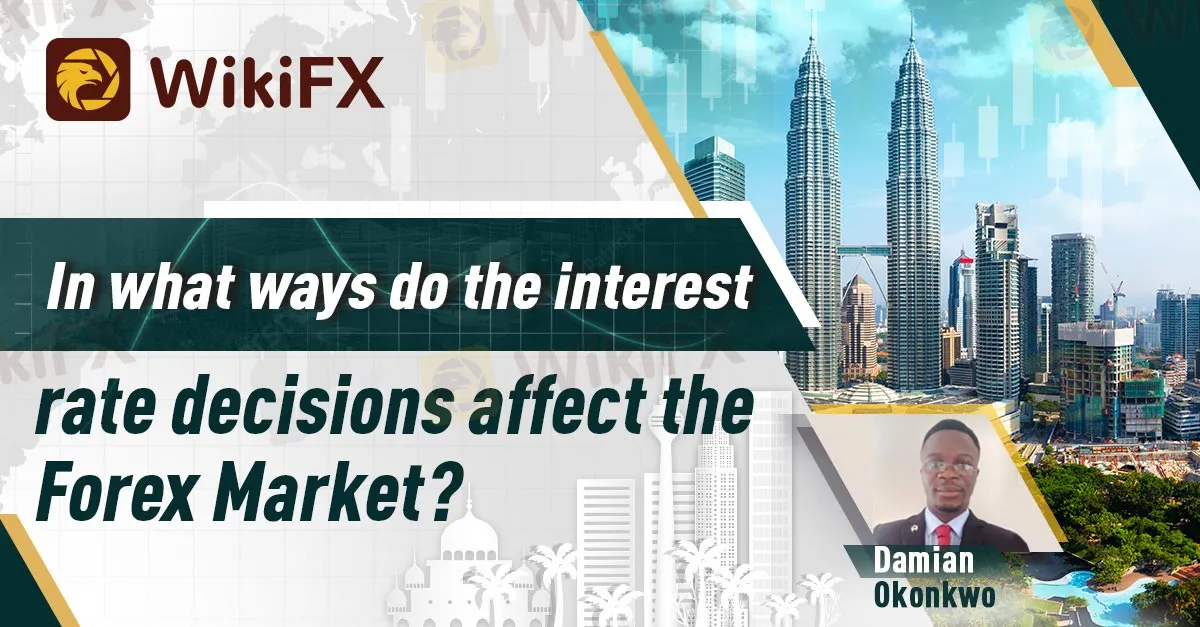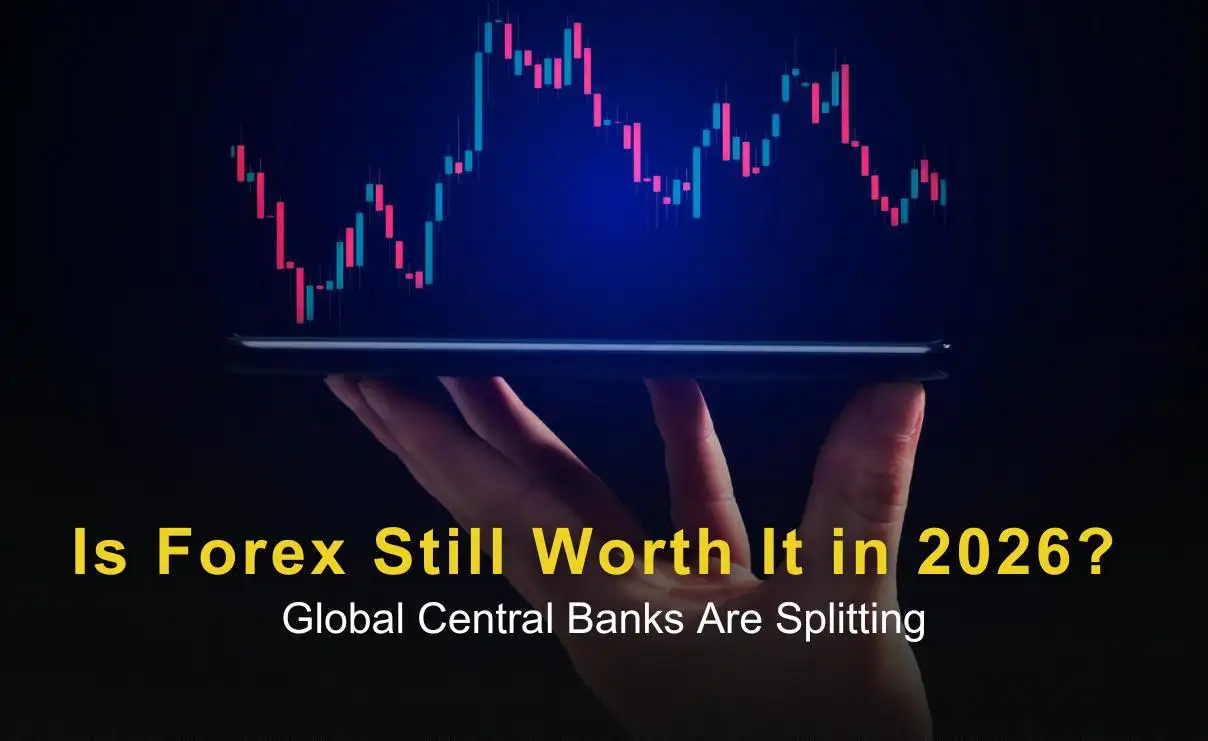Abstract:The foreign exchange (Forex) market is the largest and most liquid financial market globally, with trillions of dollars being exchanged daily. A multitude of factors can influence the dynamics of this market, and one of the most significant factors is the interest rate decisions made by central banks. Interest rates play a crucial role in shaping currency valuations, driving capital flows, and impacting global trade. In this article, we will delve into how interest rate decisions affect the Forex market and discuss their implications for traders and investors.

By: Damian Okonkwo

Various ways in which the Interest Rates decision affect the Forex Market
A. Currency Valuation
Interest rate differentials between countries are fundamental drivers of currency exchange rates. When a central bank raises interest rates, it creates an attractive environment for foreign investors to hold that currency, leading to an increase in demand. Consequently, the value of that currency appreciates relative to other currencies, affecting exchange rates.
For instance, if the Federal Reserve (Fed) in the United States decides to raise interest rates, it would make U.S. dollar-denominated assets more appealing to investors seeking higher returns. This increased demand for the U.S. dollar would cause its value to appreciate against other currencies, leading to a decline in the exchange rates of those currencies.
B. Capital Flows and Risk Appetite:
Interest rate decisions also impact capital flows between countries. When interest rates rise in a particular country, foreign investors are enticed to invest there, seeking higher yields on their investments. This influx of capital increases the demand for the local currency, causing it to appreciate.
Conversely, when interest rates are lowered, investors may seek higher returns elsewhere, leading to capital outflows and a depreciation of the currency. Changes in interest rates, therefore, influence the risk appetite of investors and affect the flow of funds into or out of a country.
C. Carry Trades and Yield-Seeking Behavior:
Interest rate differentials between countries give rise to carry trade opportunities. A carry trade involves borrowing a currency with a low-interest rate to invest in a currency with a higher interest rate. Traders profit from the interest rate differential, as long as exchange rates remain stable.
When interest rates are high in a particular country, traders are more likely to engage in carry trades, leading to increased demand for that currency. Conversely, if interest rates decrease, carry trades become less attractive, resulting in a decline in demand for the currency.
D. Central Bank Policy and Market Sentiment:
Interest rate decisions are closely monitored by market participants as they provide insights into a central bank's monetary policy stance. Expectations regarding future interest rate changes influence market sentiment and, subsequently, currency movements.
For example, if a central bank adopts a more hawkish stance by signaling potential interest rate hikes due to inflationary pressures, the currency may experience appreciation in anticipation of higher interest rates. Conversely, a dovish stance, with indications of interest rate cuts, may lead to currency depreciation.
E. Economic Growth and Trade:
Interest rates play a vital role in stimulating or curbing economic growth. Lower interest rates encourage borrowing and investment, boosting economic activity. This expansionary monetary policy can increase demand for a country's exports, leading to a potential appreciation of its currency.
Conversely, when central banks raise interest rates to control inflation or cool down an overheating economy, it can lead to a slowdown in economic growth. This contractionary policy may decrease demand for a country's exports and result in currency depreciation.
Conclusion
Interest rate decisions made by central banks have a significant impact on the Forex market. They influence currency valuations, capital flows, and market sentiment, and ultimately shape global trade dynamics. Forex traders and investors closely monitor interest rate decisions and associated statements to assess the future direction of exchange rates. Understanding the relationship between interest rates and the Forex market is essential for market participants to make informed trading decisions and manage risks effectively.











